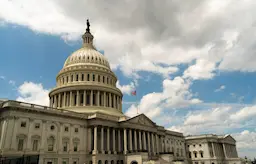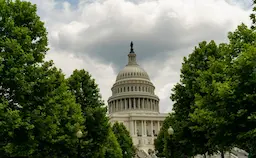Public Policies
It is critical that Financial Inclusion is addressed through public policies, and governments and organizations working together to make it easier to mitigate this divide. We have compiled a representative list of public policies in the US that aim to help increase financial inclusion.
State-wise Public Policies
Is Your State Making the Grade?
Champlain College’s Center for Financial Literacy, using national data, has graded all 50 states and the District of Columbia (D.C.) on their efforts to produce financially literate high school graduates. What the grading shows is that we have a long way to go before we are a financially literate nation.
– Champlain College
State Financial Literacy 2022 Legislation
Financial literacy is one factor in the larger analysis of the financial capability of consumers, which is the broader picture of how consumers manage their resources and how they use their financial literacy to make financial decisions. Thirty-seven states, Puerto Rico and the District of Columbia have addressed financial literacy legislation in 2022.
– NCSL
National Public Policies
H.R.1711 - Financial Inclusion in Banking Act of 2021
This bill expands the duties of the Office of Community Affairs within the Consumer Financial Protection Bureau regarding under-banked, un-banked, and underserved consumers. Specifically, the office must (1) report on impeding factors for individuals and families that do not participate in the banking system, and (2) develop strategies to increase such participation. The bill also decreases, beginning September 30, 2031, the cap on the surplus funds of the Federal Reserve banks. (Amounts exceeding this cap are deposited in the general fund of the Treasury.)
H.R.745 - Fair Access to Credit Scores Act of 2021
This bill requires certain consumer reporting agencies to disclose, upon request, as part of a consumer’s free annual disclosure (1) the consumer’s current credit score, (2) other information in the consumer’s file regarding risk scores or predictors, and (3) any other consumer information the Consumer Financial Protection Bureau considers appropriate with respect to consumer financial education. Consumer reporting agencies must maintain these scores or predictors in a consumer’s file for at least one year after the data is generated.
H.R.1547 - Youth Financial Learning Act
This bill directs the Department of Education to award competitive grants to state educational agencies and, through them, subgrants to local educational agencies to integrate financial literacy education into public elementary or secondary schools.
S.563 - Fair Access to Banking Act
This bill restricts certain banks, credit unions, and payment card networks from refusing to do business with a person who is in compliance with the law. Restrictions include prohibiting the use of certain lending programs, initiating the process of terminating an institution’s depository insurance, and instituting specified civil penalties.
H.R.154 - RESCUE Act for Black and Community Banks
This bill establishes programs and requirements related to minority banks, Black banks, community banks, women’s banks, and low-income credit unions. The bill establishes the Office of Black and Community Banks in the Office of the Comptroller of the Currency (OCC) to oversee Black and community banks. The OCC and the Securities and Exchange Commission must exempt these banks from specified securities and federal banking regulations in certain circumstances. The bill also establishes the Minority Bank Deposit Program. The Department of the Treasury must certify a depository institution or credit union upon successful application as a minority bank, a women’s bank, or a low-income credit union. Every federal department and agency is directed to implement standards and procedures to ensure the use of such institutions to serve the financial needs of the department or agency. The Government Accountability Office must study the use of the new markets tax credit, lower-value home mortgages, and blockchain investments.
S.1088 - Financial Institution Customer Protection Act of 2021
This bill specifies that a federal banking agency may not request or order a depository institution to terminate a customer account unless (1) the agency has a valid reason for doing so, and (2) that reason is not based solely on reputation risk. Valid reasons for terminating an account include threats to national security and involvement in terrorist financing, including state sponsorship of terrorism. A federal banking agency requesting a termination must provide the depository institution with notification and justification. The bill also sets forth additional requirements for the Department of Justice when seeking subpoenas, summoning witnesses, or compelling document production in the course of conducting a civil investigation in contemplation of a civil proceeding involving certain banking laws.
H.R.2540 - Small Business Lending Fairness Act
This bill prohibits as a condition to a loan or extension of credit a confession of judgment or similar agreement. (A confession of judgment is an agreement to a judgment of liability without notice and opportunity to be heard in court in the event of the default of a borrower.)
H.R.1502 - Microloan Improvement Act of 2021
This bill revises the microloan program through which the Small Business Administration (SBA) provides, through designated intermediaries, certain financial assistance to small businesses. Specifically, the bill authorizes an intermediary to offer a line of credit to a small business, and it increases the average amount for loans from an intermediary to participating small businesses that makes the intermediary eligible for a reduced interest rate on SBA loans. The bill also places limits on the repayment term for a microloan, and it prohibits the SBA from imposing any additional limitation on the term for repayment of a microloan. Further, the SBA must (1) reserve 15% of new loan funds that are made available for disbursement as microloans to designated underutilized states and make the remaining 85% available for any state, (2) establish a process for an intermediary to provide the major credit reporting agencies with information about a borrower that is relevant to credit reporting, and (3) include information regarding equitable distribution of loan funds in its annual report.
H.R.3483 - Young Americans Financial Literacy Act
This bill requires the Consumer Financial Protection Bureau to award competitive grants to eligible institutions for the establishment of financial literacy education programs for young people and families. An eligible institution is a partnership among two or more of the following an institution of higher education; a state or local government agency specializing in financial education; a nonprofit agency, organization, or association; a financial institution; or another small organization. Authorized grant funded activities shall include developing and implementing comprehensive, research based, financial-literacy education programs for young people; designing instructional materials; developing and supporting the delivery of professional development programs in financial literacy education; improving access to, and dissemination of, financial literacy information for young people and families; developing educational programs to reduce student loan default rates; conducting ongoing research and evaluation of financial literacy education programs; and measuring the effectiveness of authorized activities. The grant program shall terminate after FY2025.
S.3891 - Postal Banking Act
This bill grants the U.S. Postal Service (USPS) the power to provide basic financial services, including low-cost, small-dollar loans, in specified amounts; small dollar lending servicing, which shall ensure that the customer’s access to the products and the public interest is given significant consideration; small checking accounts and interest-bearing savings accounts in specified amounts; transactional and remittance services; and other basic financial services in the public interest. It grants the USPS the power to set interest rates and fees for the financial instruments and products provided by the USPS that meet specified requirements. The USPS (1) shall not be granted a bank charter or become an insured depository institution for the purpose of capital requirements, and (2) shall be subject to the provisions of the Uniform Commercial Code regarding bank deposits and collections. The Federal Reserve Board of Governors shall transfer to the USPS such sums as necessary to carry out the services described in this bill, which shall (1) be sufficient to ensure that the products substantially decrease the number of people who do not have a bank account or use alternative financial products such as payday lending, check cashing, prepaid debt cards, and overdraft fees; and (2) be provided to the USPS through a separate account. The Government Accountability Office shall submit to Congress an annual report that includes the demographics, number of participants, and average balances and uses for such products.
H.R.5779 - Financial Fitness Act
This bill directs the Department of Education to create a personal finance education portal for voluntary use by recipients of federal financial aid. The portal must be on a centralized and publicly available website and include information on personal finance concepts, including core personal finance topics (e.g., earning, investing, and borrowing) and managing student loan repayment.
S.762 - Expanding Access to Lending Options Act
This bill allows the National Credit Union Administration Board to increase the federal credit union loan maturity cap from 15 to 20 years. It also removes as a requirement for a mortgage from a credit union that a property must be a credit union member’s principal residence.
H.R.2913 - Encouraging Americans to Save Act
This bill sets forth provisions to provide matching payments for retirement savings and Individual Retirement Account (IRA) contributions for individuals who have attained age 18, excluding dependents and full-time students. Specifically, it allows an enhanced 50% tax credit, up to $3,000, for deductible retirement savings contributions and for IRA contributions. The bill also directs the Department of the Treasury to establish a permanent program to be known as the MyRA Program to allow individuals or employers to establish a Roth IRA. Treasury must also take steps to increase public awareness of the benefits of this bill and the MyRA Program in particular.
S.63 - Unlocking Opportunities in Emerging Markets Act of 2021
This bill establishes the Office of Emerging Markets within the Small Business Administration to oversee the planning, coordination, implementation, evaluation, and improvement of efforts to enhance the economic well-being of small business concerns in emerging markets.
H.R.1645 - Protecting Consumer Access to Credit Act
This bill revises requirements related to credit reporting agencies and the reporting of adverse credit information. Credit reporting agencies are prohibited from using social security numbers in credit reports and as a method of verifying a consumer’s identity. The Consumer Financial Protection Bureau must supervise and examine the cybersecurity of certain credit reporting agencies. The bill prohibits a credit reporting agency from reporting paid, medically-necessary debt if the debt was paid over a year prior. A credit reporting agency is also prohibited from reporting certain adverse credit information related to financial abuse, unfair or fraudulent mortgage lending, or fraudulent private student lending. The bill extends the time credit reporting agencies have to place a credit security freeze when receiving such a request by phone or through electronic means from one to three business days. It also extends the time agencies have to remove a freeze from one hour to three days.
H.R.2561 - Promoting Access to Capital in Underbanked Communities Act of 2021
This bill eliminates and reduces certain requirements applicable to new financial institutions, certain rural community banks, and federal savings associations. Federal banking agencies must issue rules allowing new financial institutions three years to meet capital requirements. During this period, a financial institution may request to deviate from an approved business plan and the appropriate agency has 30 days to approve or deny the request. The community bank leverage ratio—a way of evaluating debt levels—is reduced for certain rural community banks. Specifically, new rural community banks must have a ratio of 8%, with a three-year phase-in of the rate. Currently, the ratio is 8.5%. The bill removes certain restrictions to allow federal savings associations to invest in, sell, or otherwise deal in agricultural loans.
Financial Literacy and Education Commission
The Financial Literacy and Education Commission was established under the Fair and Accurate Credit Transactions Act of 2003. The Commission was tasked to develop a national financial education web site (MyMoney.gov) and a national strategy on financial education. It is chaired by the Secretary of the Treasury and the vice chair is the Director of the Bureau of Consumer Financial Protection. The Commission is coordinated by the Department of the Treasury’s Office of Consumer Policy.





















 Raj Mehta – Financial Education Instructor
Raj Mehta – Financial Education Instructor